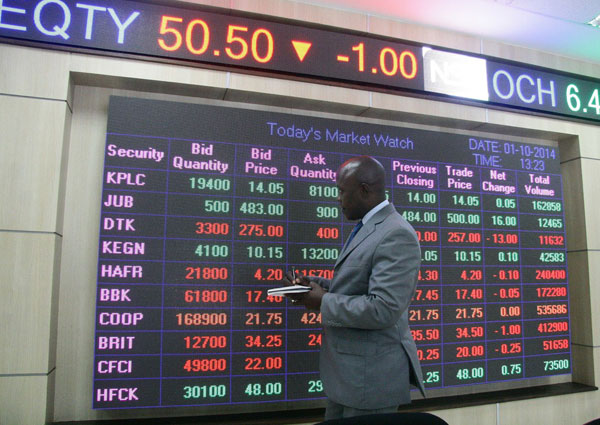
Kenya stock market off to best start since 2013
After largely avoiding equities for the past two years in favor of the fixed-income market, money managers in Kenya are back buying stocks and in large-enough volumes to outweigh persistent foreign outflows. The benchmark stock index has jumped 16 percent in response, the best in the world in 2019 after Argentina and Egypt, and the best start for Nairobi stocks since 2013.

Investing in debt has lost some of its appeal after a cap on commercial interest rates, imposed in August 2016, drove yields lower, limiting returns. Added to that, an 18 percent slump in stocks last year has reduced prices to eye-catchingly low levels.
“The valuations were just too attractive following the correction by the end of 2018,’’ said Judd Murigi, head of research at ICEA Lion Asset Management, which oversees about $1.3 billion of assets in Nairobi. The more “risk-on” environment, thanks to a slower interest-rate increase path in the U.S. and optimism over the resolution of trade disputes, has also helped to tempt buyers, he said.
Foreign investors may still determine the trajectory for Kenyan stocks in 2019, after net outflows of about $280 million last year and $116 million in 2017, according to figures from the capital markets regulator. They sold a further $13 million in January, accounting for more than 80 percent of turnover.
The attitude of foreigners may change as Kenya should be less vulnerable to volatility in commodity prices this year and looks set to steer relatively clear of any politically induced turmoil, compared with markets such as Nigeria and South Africa, which hold elections, said Joy D’Souza, head of research at Genghis Capital Ltd.
“Kenya is looking more attractive than other frontier markets,” she said. Most major stocks are still trading below their fair values, she added.
Even so, there are signs that the rally may be reaching its peak. Since late January, the 14-day relative strength index for the benchmark stock gauge has been above 70, a technical level that indicates shares may have risen too far, too quickly and be poised to retrace. The RSI is at its highest since November 2013.






